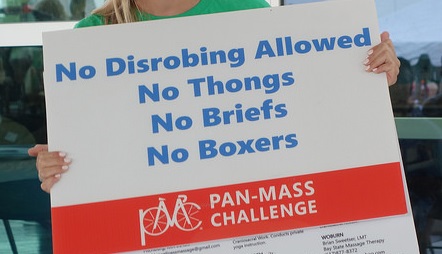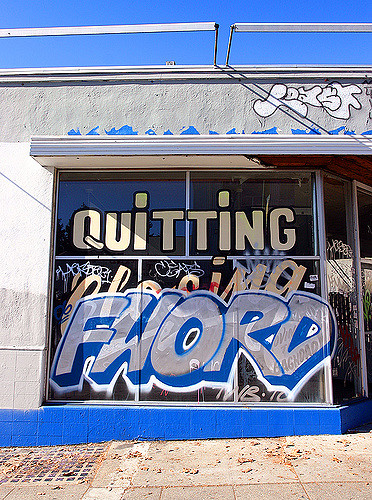My weekly thoughts on communications, marketing and social media, published weakly.
Why You No Blog?
Nobody actually asks me this, but it’s time for me to exercise my blogging muscles again. Aside from focusing on learning and serving clients rather than trying to spend time writing about my industry, I have indulged my online addiction in following the unique political landscape we currently enjoy. Through joy or despair, that world is as fascinating as it has been in years. My favorite read is Seth Abramson, a Universiuty of New Hampshire professor (go Wildcats!) who has been piecing together “Proof of Collusion” (the name of his new book, naturally) on Twitter far ahead of the mainstream press. He’s worth your time.
Sometimes being a spectator far outweighs the benefits of being a participant. That said, writing feels good and publishing feels better regardless of (lack of) readership. I’m working to be a little more consistent here once again.
Tumblr Cleaning Up Its Act, and Somehow This Post Became About Sex Workers
Tumblr has announced it is banning all “adult” content (that is, porn and assorted nekkidness)
All right, get the jokes out of your system:
- “There goes 90% of the user base.”
- “There goes 90% of the Tumblogs .”
- “Next: Tumblr shuts down.”
I suppose this cleaning up of the act is at least in part due to Yahoo!’s (and therefore Tumblr’s) acquisition by Verizon last year… maybe?
The questions to my mind are not what will Tumblr do without naughty pics, but what does the company have in mind for the platform? It can still be useful if promoted in a way that gets users to use and readers to read. That’s the forever question, isn’t it? I’ll stay tuned to see if there is a next step in the New Tumblr…or if it does indeed fritter away.

What’s to hate about banning adult content on a mainstream, open-to-all network? Well, sex workers and their advocates are speaking out, saying it will hurt their businesses and take away a necessary outlet in a world where there are relatively few.
Go back a few months to Wired.com for a better read on the wider issues facing that industry. Tumblr, Instagram and Snapchat are attractive to a wider audience, but with consolidation, nobody should be surprised that corporate parents like Verizon will clamp down on this content, whether through their own conservatism or outside pressure. I suspect a dedicated “sex positive” destination is something we’ll hear about soon (of course, if one exists, I know absolutely nothing about it).
The other question: how precise will the Tumblr ban hammer be? In an era where Facebook erases dreidel photos for “violating community standards” (this happened to a friend; the photo did not resemble anything that ought to be banned, unless Facebook is cracking down on ancient forms of gambling), I look forward to hearing about egregious examples of over-enforcement.

Professional Courtesy: LinkedIn Adding Reaction Emoji and Stories?

It’s unclear as I write this how, when or even if LinkedIn will implement these features widely, but the professional network is reportedly playing with its version of Facebook’s “Reactions” (think “Likes” but with options for expressing different emotions) and Stories. I have to wonder if LinkedIn either has “we must be a social network” disease, or if professional communications are changing in ways to which we must, begrudgingly, adjust our own standards.
Reactions? Are emoji responses appropriate professional communication? LinkedIn already has Likes, and as I recall my longtime resistance to abbreviated text language (from the AOL era) falling to Twitter’s character limit, I can see how expediency can change the perception of what’s accepted. Also, from what I could, see, the proposed emoji are not parrots of Facebook’s “Angry/Sad/Love/Wow” emoji, but altered to seem a bit more professional. Notice I did not answer the questing leading this paragraph.
As for Stories, I have never paid any mind to the evaporating content represented by many “Stories” features. SnapChat’s numerous problems (and demographics) have made it easy for me to minimize, while Facebook and Instagram Stories rarely catch my eye, living as they do outside of the main stream of content on each platform. That is why I am skeptical (aside from the fact that I am always skeptical). Unlike TechCrunch (see below), however, I don’t think they “shouldn’t” do it. The initial implementation is called “Student Voices” and is an interesting way for higher-ed students to use new communications tools to express themselves professionally. Maybe it is a good thing.
LinkedIn launches its own Snapchat Stories. Here’s why it shouldn’t have
Quitting Social Media? Don’t Tell Everyone About It.

I understand the need for many people to back away from social media; it takes over our lives sometimes and for some people it is best to disengage completely rather than try, unsuccessfully, to moderate. It’s also easy to dump on people who go offline, thinking (sometimes incorrectly) that we ourselves are doing quite well managing our own use and online addictions. If you truly think you have nothing to contribute, I’m already ignoring you online, so you can, of course, safely unplug without damaging society.
One thing I would not think of doing, should I unplug myself, is publishing an online article about it on a news site. I no more want to read online your online essay (kind of like a blog post but not really!) about your not being online, any more than I would want someone boasting about how they never watch television to go on a talk show to do so.
OK, really, I’m not going to dump n the person, but I will post one quote:
If I didn’t have anything worthy of a social media post coming up, I felt that I had nothing very important going on in my life.
Judging from my frequency on this blog lately, I can boast a more healthy response to the “I have nothing to post” feeling. To each their own.
Lock Down Your Accounts; We’re in a War.
Just a quick note to use a password manager or change your passwords. It seems like yet another company’s customer data has been compromised every day (Starwood Hotels this past week, just to name one). I have learned not to panic every time we hear about a breach (it’s more fun to know for sure your accounts are stolen), but to frequently make password data up-to-date to minimize accounts getting compromised, and check any financial accounts for suspicious activity. Vigilance may be the best defense, but I’ll defer to online security experts. Here’s a good post about general personal security management.